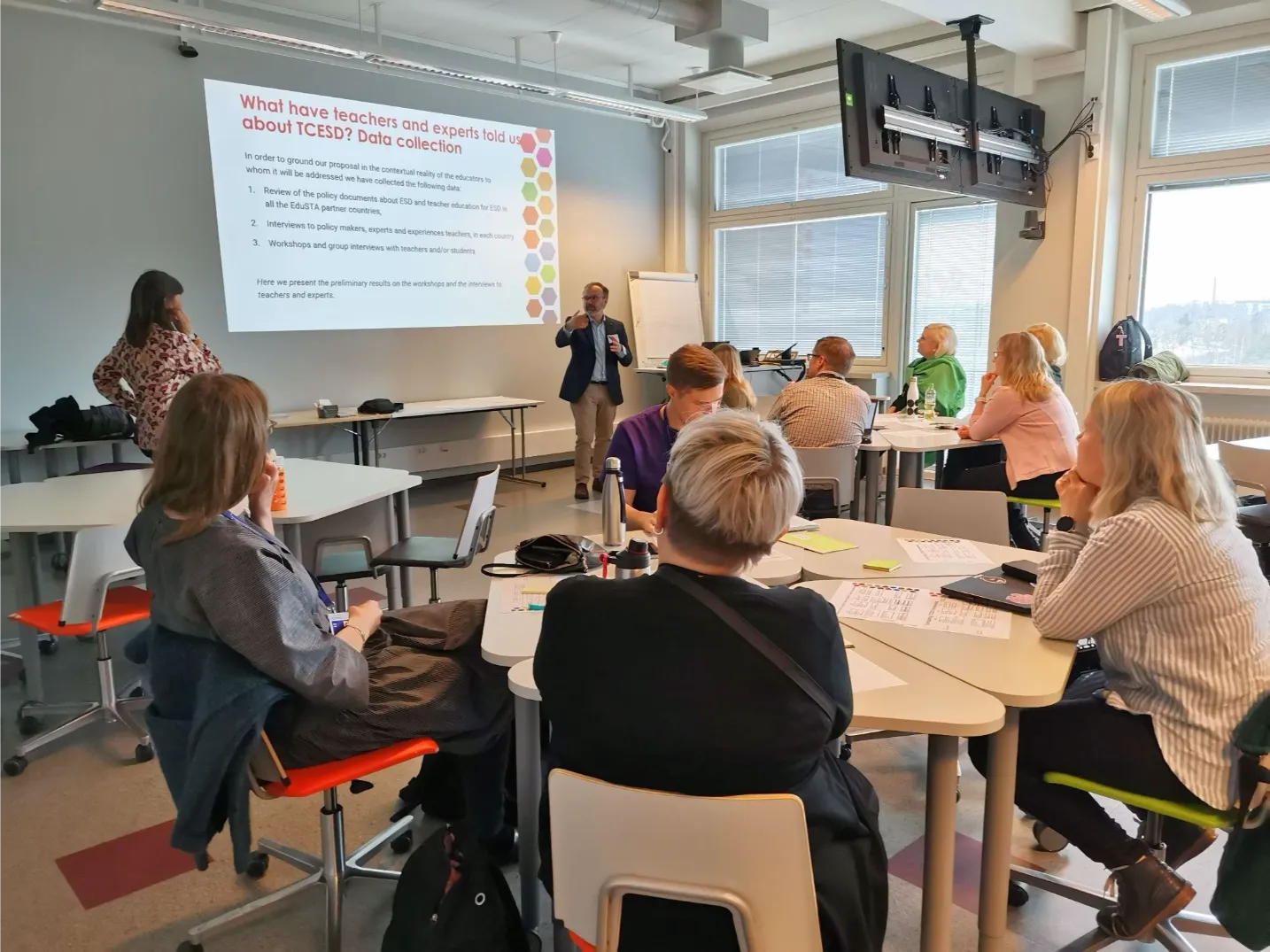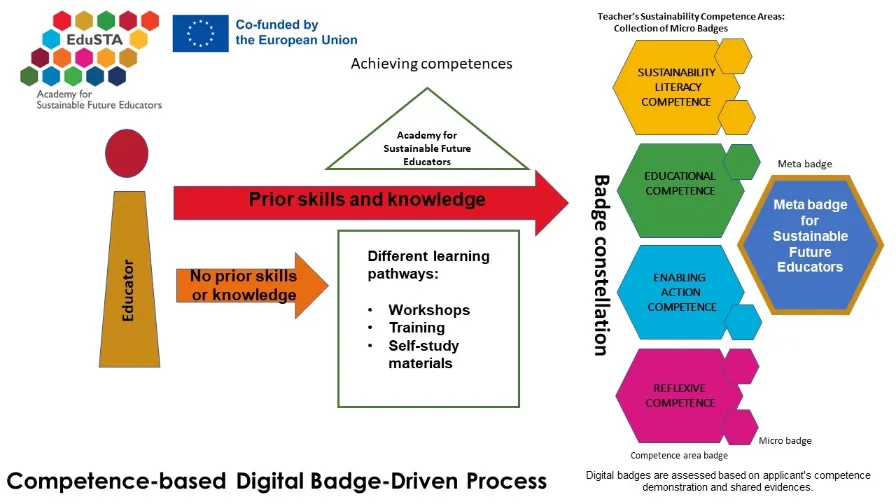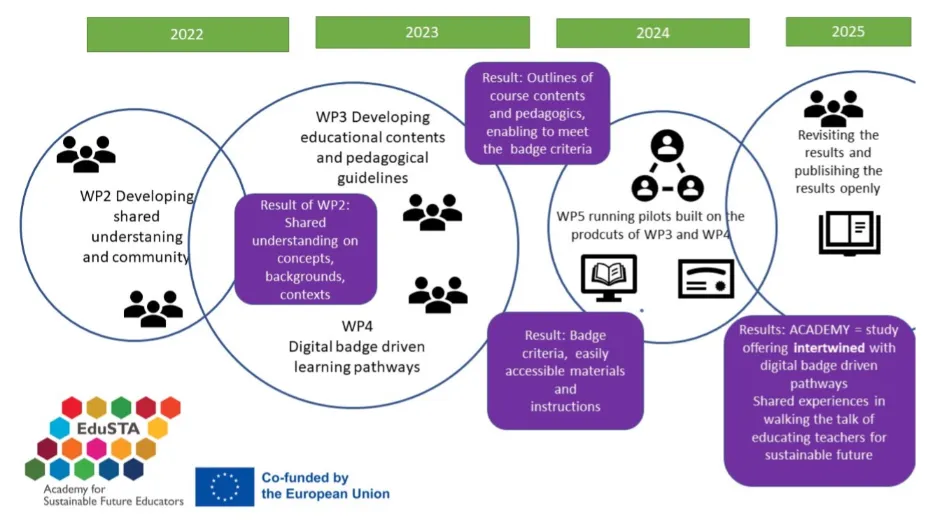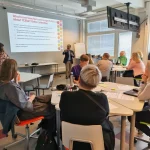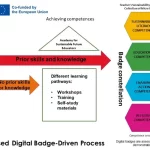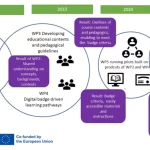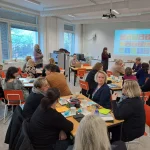Teacher: Eveliina Asikainen

Eveliina Asikainen
Eveliina’s career as an environmental educator started in early 1990s. Over the years, she has taught ecology and sustainability related topics for Finnish and international students and teachers in community colleges, vocational schools, universities and universities of applied sciences. Presently, she works as a Senior Lecturer in the School of Pedagogical Innovations and Culture of Tampere University of Applied Sciences, Finland where she leads an Erasmus+ Teacher Academies project Academy for Sustainable Future Educators – EduSTA (2022-2025). The project helps all teachers in becoming change agents for a sustainable future by developing a set of digital open badges on teacher’s sustainability competences.
Overview
A network of five teacher training institutions from across Europe are collaborating to develop and lead the implementation of a Digital Open Badge constellation to demonstrate and acknowledge the competence and competency of teachers in educational sustainability. The project draws on current research in the field and aims to use this research to transform operational teaching practices to reflect the findings, making the profession more impactful against climate change.
Theory of Change
A knowledge gap was identified by the EduSTA team between the vast amount of research that has been carried out into teachers’ sustainability competences and the daily practices of teachers and educational institutions. EduSTA aims to close this gap by offering competence-based Digital Open Badges as part of pre-service teacher training, or through continuing professional development. These badges offer practical training in everyday teacher competences reflecting the most up-to-date research. This will lead to teachers acting as key facilitators to prepare citizens and the workforce for the green transition.
Approach and Actions
Teacher education institutions from Finland, Sweden, the Netherlands, Spain, and the Czech Republic (one from each country) are currently working together to develop a network that is committed to educating teachers to prepare them practically to facilitate the social changes that are needed to build a more sustainable future. Current research is being used to build competence-based badge pathways which tackle subjects such as curriculum development, pedagogical design, and assessment. The pathways will be piloted in 2024 by approximately 300 teachers. This will enable teachers to become educators for a sustainable future- the badges are designed specifically to assist teachers to conform to the requirements of SDG 4.7. The badge pathways will be recognised as learning modules in the partnering institutions and the competence descriptions and badge criteria can be used by other institutions. Digital Open Badges serve as transferable digital certificates of teacher’s sustainability competences and micro-credentials. EduSTA will also feedback knowledge and evidence to policymakers about the use of Digital Open Badges and will advise on the impact that operationalised competences can have on society.
Teacher_ Eveliina Asikainen
Impact
